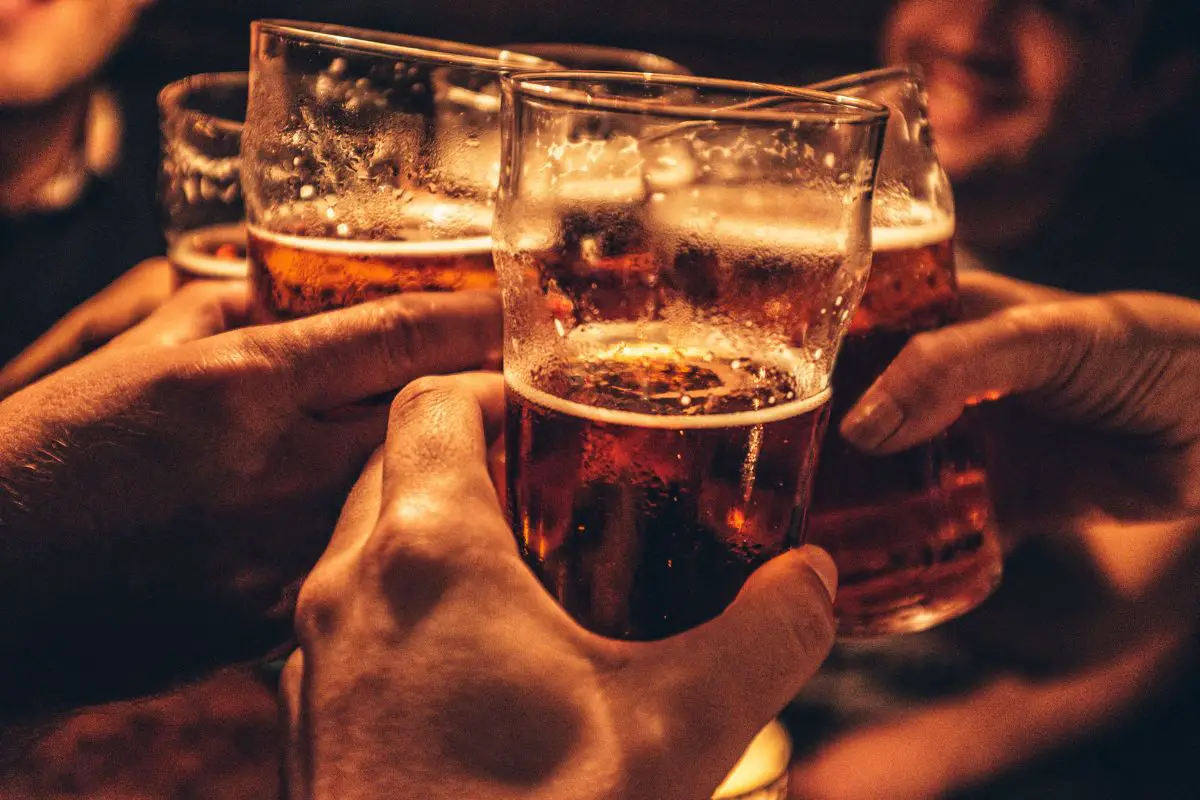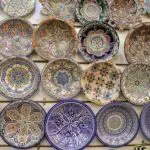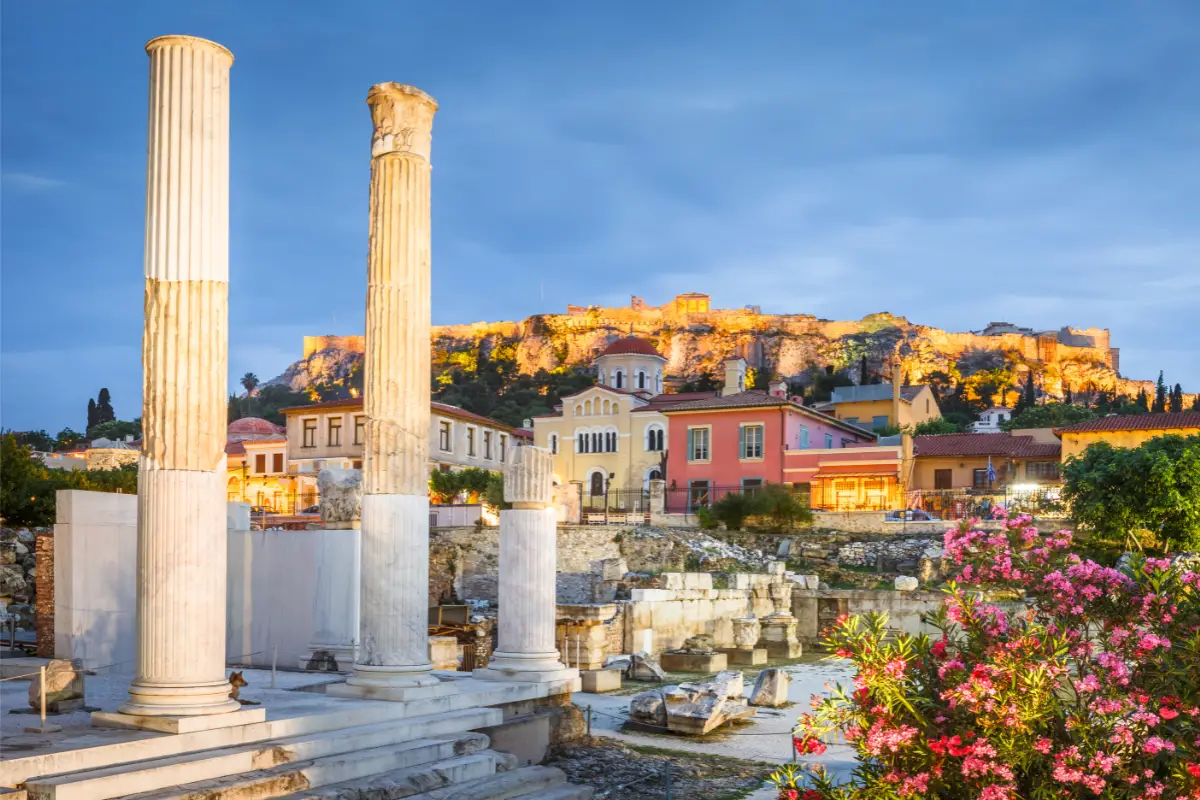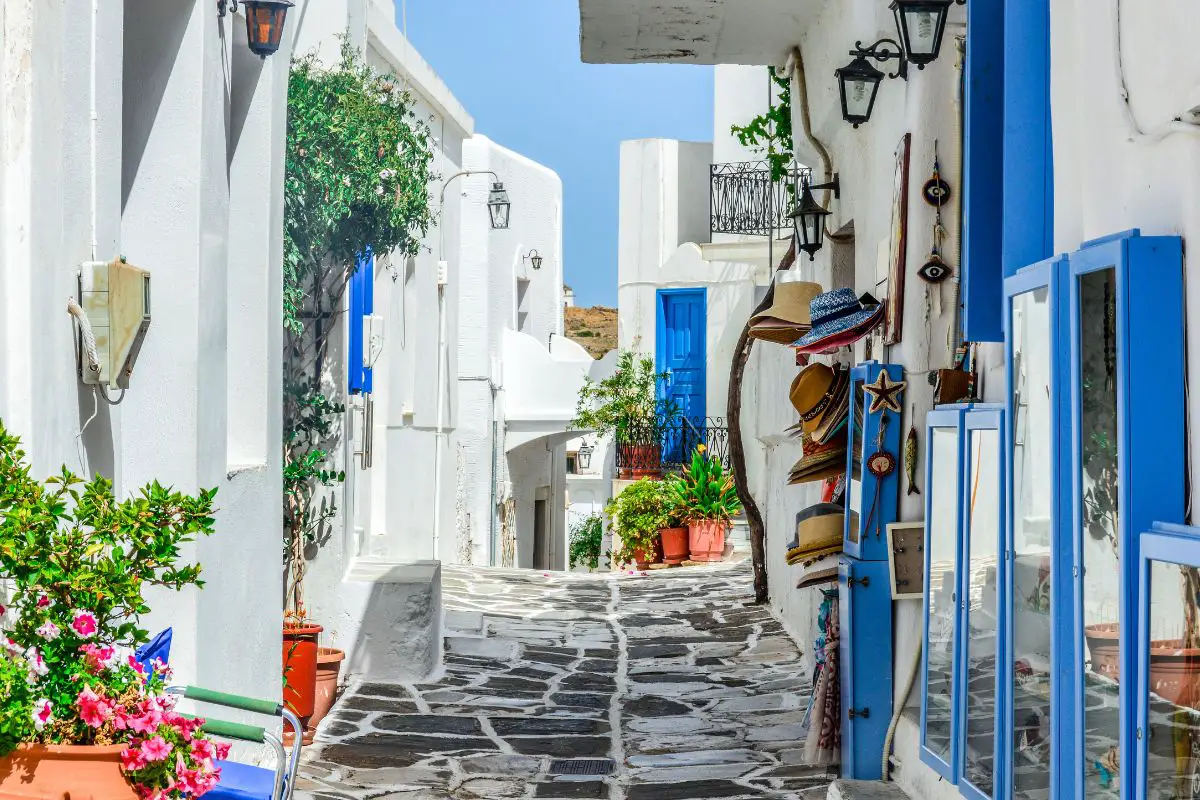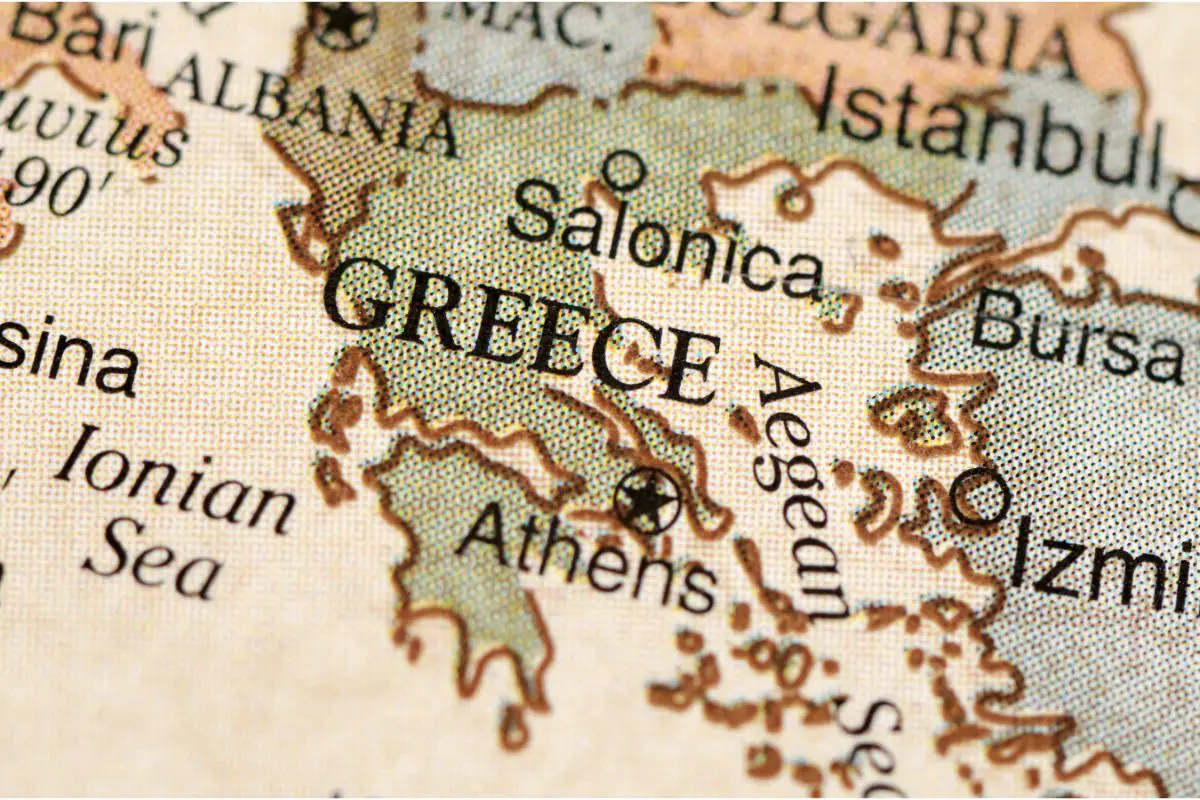Hearing cheers is usually a sign of friendship and happiness – and while cheers is sometimes said in the United States, it’s much more common to hear the phrase in European countries.
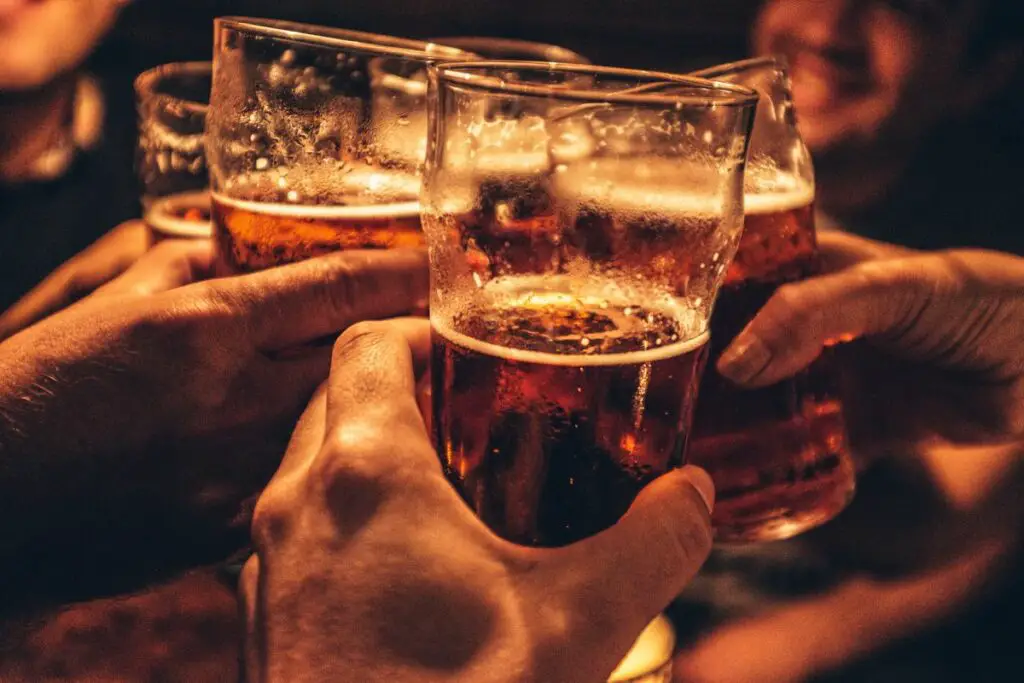
In Greece, you’ll hear cheers quite regularly, but there’s various ways to say it. The most usual way to say cheers in Greek is Yiamas, however that’s not to say that this is the only correct way to say it.
This guide will examine all the ways to say cheers in Greek, why you might say it and a lot more information that you may need to know.
So, if you’re thinking of a Greek vacation – read on to learn more.
Different Ways To Say Cheers In Greek
As we mentioned, there’s not simply one way to say cheers in Greek. Many would argue that Greek is one of the most difficult languages to learn, and we could understand why they might think this.
Looking at the phrase cheers for example, there are four ways to say it. While they might not directly translate to the word “cheers”, their symbolic and overall meaning remains the same.
Here’s what the four ways are:
Yiamas
Yiamas is the most common way you’d hear cheers in Greek. It’s actually a shortened version of stin iyia mas, which translates as “to our health”.
Stin Iyia Sou/Sas
Similar to the previous way of saying it, stin iyia sou and stin iyia sas mean cheers but they translate as to your health as a plural or singular. It’s really a matter of context with each version here.
Aspro Pato
Aspro pato is a direct translation of “white bottom”, but its meaning is the same as our version of “bottoms up”. Whilst this isn’t “cheers” as such, the use of the term is the same.
Eviva
Eviva or viva is more of an outdated way of saying cheers in Greek, but some people still use it. You’re far less likely to hear it in bars and restaurants though.
What Does Cheers Mean?
To give cheers is a way to give people happiness and a feeling of overall happiness. The term likely came from the French word chiere which originally meant face or head, but eventually became used for happiness, some time in the 18th century.
Why Do We Give Cheers?
Giving cheers is used as either a way to celebrate, give someone thanks or to toast someone. Literally, it is a way to evoke a cheer – or cheers.
Whilst the origin of why we give cheers isn’t exactly clear, we know that the overall practice was and is done by a multitude of different countries and cultures.
We also know that it was very common in Great Halls for viking culture, and there were various reasons for that. Notably either to celebrate success, a birth, a marriage or to toast the Gods.
Why Do We Clink Glasses When Giving Cheers?
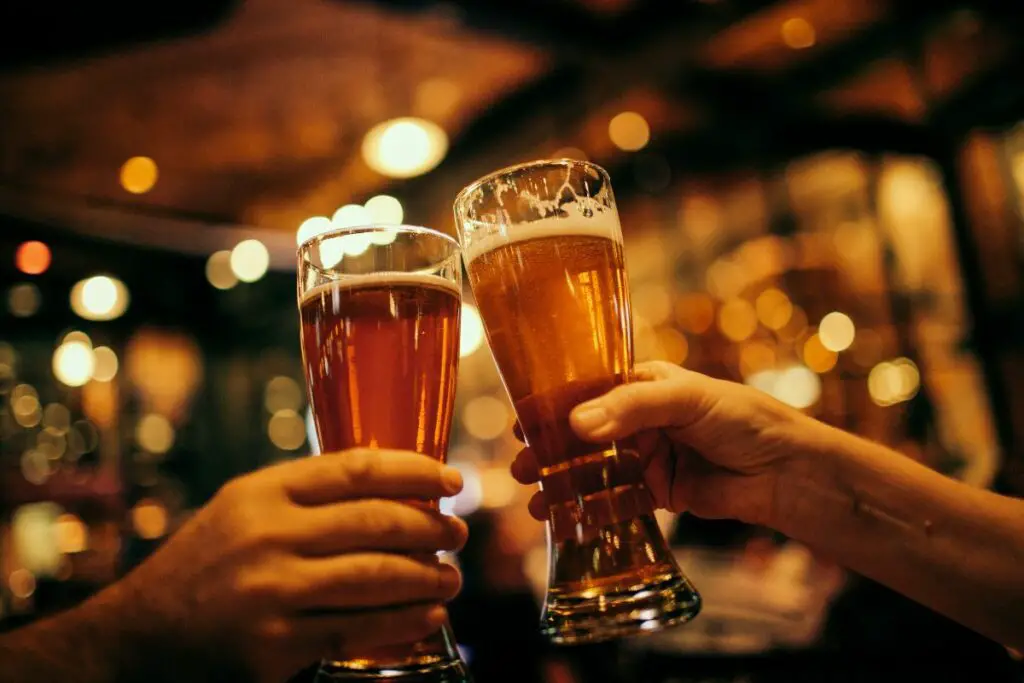
You may have noticed people clinking glasses when saying cheers and wondered where this tradition came from. Well, as we mentioned, there’s actually lots of reasons why people may have originally started this.
Let’s take a look at these in more detail.
Sensory Enhancement
Some historians theorize that clinking glasses was a way to enhance the overall experience of the drink, especially when it came to wine, champagne or other premium alcohols.
Supposedly, the sound waves would enhance the sensory experience by improving all of your senses before you take a drink.
Fend Off Evil
As a medieval practice, clinking glasses together was a way to ward off evil spirits and demons. It was theorized that this could be done by spilling some of the drink on the floor and then yelling loudly.
This was especially true in German culture, as they not only did this but also banged the large steins (or mugs) onto the table, meaning lots of spillage and noise!
A Drink “Handshake”
As a way to show respect like a handshake, clinking glasses is a physical act between friends or other people that you wish to give cheers to.
A Test For Poison
Again, this is more of a medieval practice – but in this era, poisoning drinks was quite a common occurrence, especially among nobility and the monarchy. By clinking glasses, alcohol would usually spill into every glass.
This essentially provided people with a sense of reassurance that their drink was not poisoned because everybody’s drink was the same – and if everybody took a drink, nobody had intentionally poisoned someone’s drink.
Respect To The Gods
Indeed, respect to the Gods was and still is very important in many cultures. Greek culture is especially prominent historically to this.
It was very common to toast to the Gods by clinking glasses as praying for good health to the Greek God Bacchus – the God of wine.
Other cultures also did this during banquets and feasts as a way to show their respect to the Gods as a thank you for their food and drink, but also as a way to pray for future prosperity with food and drink.
What Is A Toast?
Toasting and saying cheers are often used interchangeably and there’s a good reason for this. They are both essentially the same thing nowadays, in that it is used as a way to show respect to somebody or a group of people.
Cheers can be done quickly and for any reason though, whereas a toast is usually reserved for a special occasion such as a wedding.
The term toast came from a 16th century practice to add spiced toast to wine which would improve its flavor by reducing its acidity.
The Bottom Line
If you’re looking to say cheers in Greek, you’re better off using the term Yiamas, but you could choose any of the deverevations (You might also want to check out How Do You Say Goodnight In Greek?)!
- The Top Restaurants Specializing in Truffle Dishes - August 10, 2023
- Truffle Panna Cotta: A Decadent Dessert Recipe for Truffle Lovers - August 7, 2023
- Truffle Scrambled Eggs: A Luxurious Breakfast Delight - August 7, 2023

